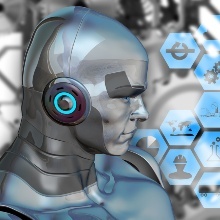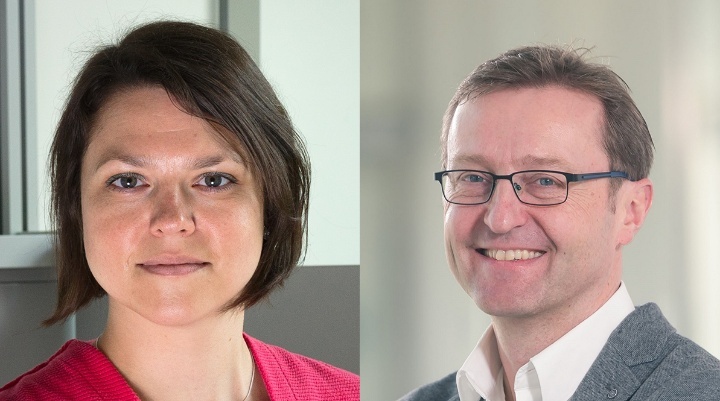What effect do intelligent systems have on society? The newly founded “Interchange Forum for Reflecting on Intelligent Systems” (IRIS) at the University of Stuttgart aims to answer this very question. After selecting Junior Professor Maria Wirzberger (Institute of Educational Science and Psychology) as the spokesperson and Prof. Steffen Staab (Cluster of Excellence SimTech, Institute of Parallel and Distributed Systems) as co-spokesperson, the research network is now commencing operations.
One strategic objective of the university is to acquire knowledge which can be used for society to shape its future responsibly. With the IRIS network, researchers intend to critically reflect on the foundations, mechanisms, implications and effects of intelligent systems in research and teaching and with regard to society as a whole. At the interface between AI and ethics, the scientists ask for example how unfair discrimination or stereotyping when developing technology can be avoided by using artificial intelligence to make automated decisions.
Prof. Wolfram Ressel, Rector of the University of Stuttgart, was pleased about the new organization. “With the new research network IRIS the University of Stuttgart is showing one of its strengths, namely discussing and researching a current topic from a variety of different perspectives and across different disciplines. IRIS brings together scientists representing all disciplines from across the university – AI researchers and philosophers, linguists and software engineers – in order to design intelligent systems together which are both responsible and sustainable. We intend to use the skills pooled together in IRIS to occupy a leading position in the reflexion of intelligent systems.
Junior Professor Maria Wirzberger, the spokesperson for the new research network IRIS, is dealing with the question among others together with her team of how discrimination can result from technology and how this can be countered. She says, “Put in simple terms, algorithms are like drawers. They are based on standards which were set by human beings, which means they may contain their stereotypes inside them. These stereotypes are often subconscious, which means they become embedded in new technologies without anybody noticing.” Co-spokesperson Prof. Steffen Staab works with his team across disciplines to gain a full understanding of technical decision-making by artificial intelligence, such as the granting of loans. “We’ve learned over the past few years how naively using artificial intelligence for automated decision-making can lead to unfair discrimination. This is why we’re developing new methods to avoid, recognize and explain fairness or unfairness”, he says.
Other tasks and offers from IRIS
As well as carrying out research, IRIS also creates opportunities for people to discuss the latest ethical and societal challenges of intelligent systems both inside and outside the university with partners from society and business, starting with data ethics through to informational self-determination and reliable AI. There is also a focus on teaching. The teaching forum Reflecting on Intelligent Systems in the Next Generation (RISING), which is led by Wirzberger, teaches students from all different subjects how to critically reflect on intelligent systems.
Using intelligent systems responsibly
How does IRIS help to work against stereotyping in the development of technology? The spokesperson Wirzberger explains: “What’s so good about IRIS is that it makes students aware of this issue before they enter the workplace. This means that things like discrimination due to technology won’t happen to the same extent any more.” Wirzberger also hopes that the network should strengthen the university’s ties with organizations abroad. “When different people come together you get good ideas and a lively exchange”, believes the scientist. Scientists from the Clusters of Excellence as well as all the Profile Areas and Emerging Fields at the university are involved in the new university-wide research network IRIS. IRIS is funded by the German Research Foundation (DFG) as part of the Excellence Strategy of the German federal and state governments as well as by the university’s research fund.
Expert Contact:
Jun. Prof. Dr. Maria Wirzberger, University of Stuttgart, Institute of Educational Science and Psychology, Department of Teaching and Learning with Intelligent Systems, Tel. +49 711 685 81176, E-mail
Prof. Steffen Staab, University of Stuttgart, Cluster of Excellence SimTech, Institute of Parallel and Distributed Systems, Department of Analytic Computing, Tel. +49 711 685 88100, E-mail



